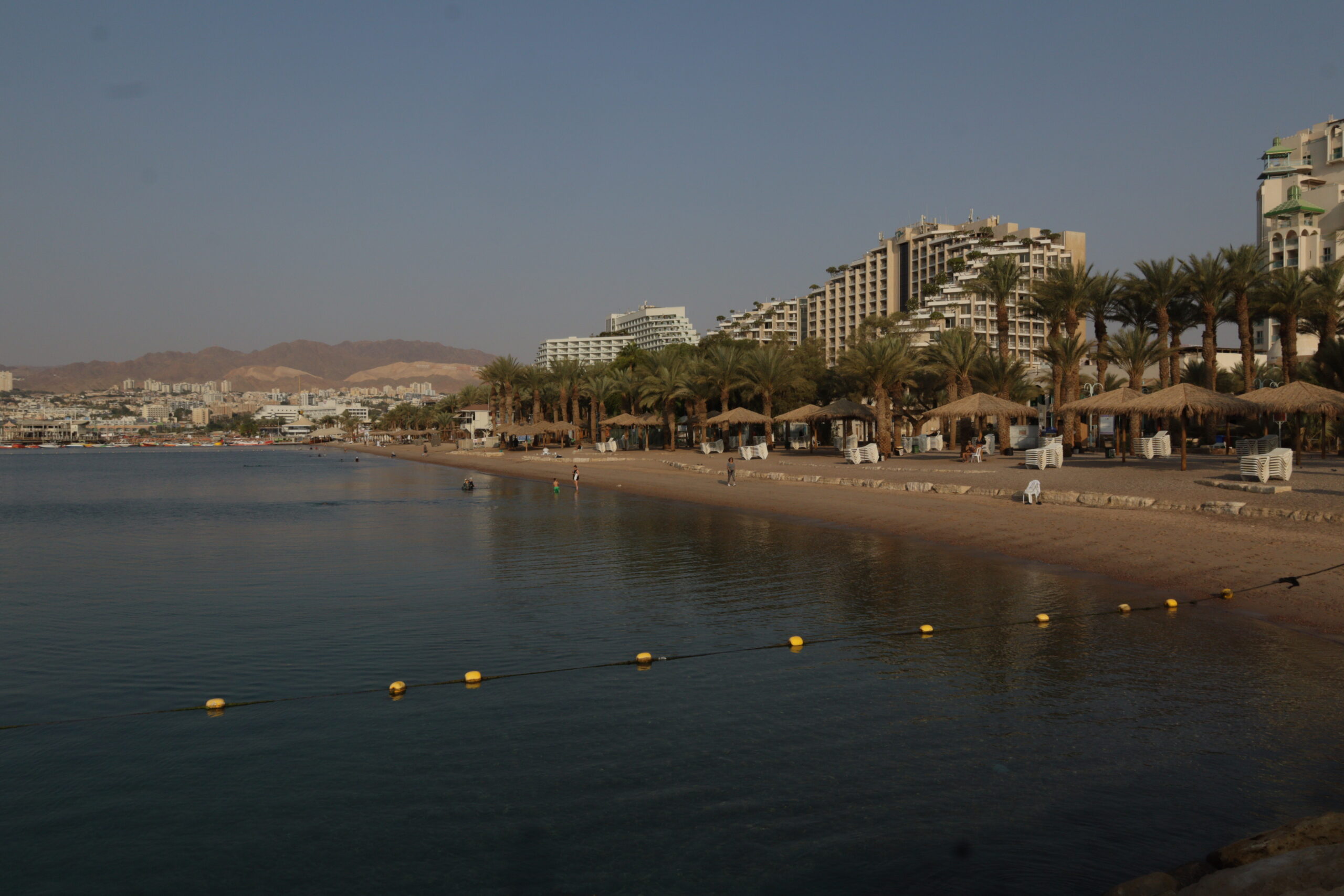There’s a moment when you walk along Eilat’s shoreline — somewhere between the quiet hotels and the soft ripple of the Red Sea — when it hits you: this place isn’t dying, but it’s definitely not living either. It’s suspended. Waiting. Hesitating. As if the city knows what it could be, but no one has bothered to push it forward.
The image tells the story clearly. The water is beautiful, calm, genuinely inviting — the kind of blue people fly thousands of miles to swim in elsewhere. The mountains across the bay glow under the sun. The infrastructure exists. The climate is perfect for most of the year. And yet, the beach feels half-abandoned. The umbrellas look like props. The hotels seem frozen in time, still competing with brochures from the early 2000s. You can almost feel the ghosts of what Eilat used to be: lively, relevant, and wanted.
But tourism today is ruthless. If a destination doesn’t reinvent itself, it becomes background noise. And Eilat hasn’t reinvented anything in years.
While cities like Dubai, Antalya, and Sharm doubled down on innovation, design, culinary scenes, nightlife, and international branding, Eilat did the opposite. It leaned on nostalgia and domestic tourism — as if unlimited demand would always be there. But Israelis learned to travel. Flights became cheap. Choice became global. And suddenly Eilat wasn’t the exotic escape — it was the default option when everything else was either booked or too expensive.
The stagnation isn’t just visible — it’s cultural. There’s no fresh identity, no signature experience, no global positioning. The diving scene should be world-class branding. The desert should be leveraged as a luxury and wellness magnet. The Red Sea marina could be a hub for yacht tourism and creative lifestyle travel. Instead, we get aging hotels, predictable restaurants, and a tourism approach that feels more functional than aspirational.
Eilat doesn’t need more tourists. It needs a reason for people to want to come.
If the city wants a future, it has to stop selling sun and duty-free shopping — every destination on earth offers those now. It needs vision. It needs ambition. It needs a story. It needs the railway. Because right now, Eilat feels like a resort stuck in pause mode — not failing, not thriving — just waiting for someone brave enough to restart it.

Leave a Reply